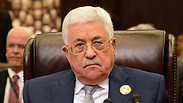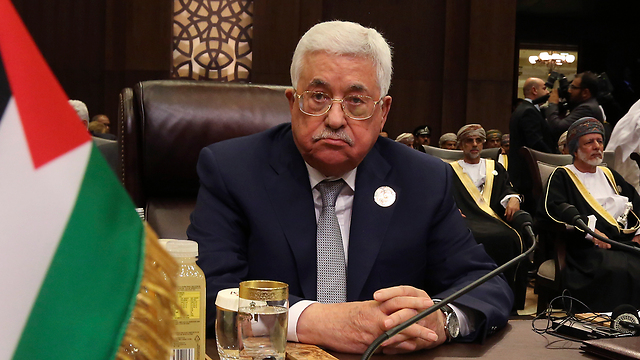

Palestinian Authority cracks down on press freedom
Abbas's recently enacted Electronic Crimes Law leads to the closure of some 30 websites and the detention of multiple journalists in the West Bank in the name of 'national security' and 'public good'; in Gaza, Hamas attacks, kidnaps, tortures and limits journalists from travelling abroad.
Over the past month, Palestinian Authority security forces arrested multiple journalists, including Tareq Abu Zeid, Amer Abu Arafa, Mamdouh Hamamra, Ahmad al-Halayqa and Qutaiba Qasim.
The families of the detained journalists and human rights activists participated in a sit-in this week in downtown Ramallah to protest the arrests and the Electronic Crimes Law, enacted by President Mahmoud Abbas in July.
The civil courts nevertheless have extended the detention of the journalists for working with channels considered by the Public Prosecution to be banned in the West Bank.
The PA has seemingly launched a crackdown on civil society, including shutting down social media accounts and websites—all of which were said to be guilty of “electronic crimes.” So far, about 30 sites have been closed, with some of the reasons given being for the purposes of “national security,” “political stability,” “public good,” “social peace,” etc.
Mohammad Laham, who is responsible for protecting journalists’ freedom of speech, explained to The Media Line that the new law covers a very broad range of potential offenses. Such tactics have allowed Abbas’s government to exercise executive powers in many instances without reasonable grounds, and despite the fact agreements to not arrest journalists have previously been signed between the Palestinian Journalist Association and the PA.
In response, the Association has decided to establish a committee to study and monitor the newly-established law with the aim of ultimately rewriting it in a more specific and less all-encompassing way.
The situation is far worse in Gaza, where journalists have few if any rights. “In Gaza, Hamas attacks, kidnaps, tortures and limits journalists from travelling abroad,” according to one journalist who spoke to the Association on condition of anonymity. But even talking is itself unsafe in Gaza, as Hamas placs pressure on journalists who are detained not to report any abuses upon their release.
Hamas even exercises the right to file lawsuits against journalists without citing any particular criminal activity or evidence of wrongdoing. Reporter Ali Ba’alousheh, for example, was arrested for sixteen days after being accused of “misusing technology.”
Speaking to The Media Line, Mohammed Abu Alrob, a media professor at Berzeit University, stressed that media is not an “open tool” for Palestinians and that the PA reserves the right to monitor outlets and their content in the West Bank.
“Most of the websites that have been blocked by the PA are affiliated with Hamas, the Muslim Brotherhood or (Abbas foe Mohammad Dahlan),” he continued, “which broadcast from Turkey and spread fake news.”
Accordingly, there appears to be not only a human rights component to the crackdown but also a political one. In this respect, Abu Alrob confirmed that the PA can block any media that uses the Palestinians to serve foreign agendas.
When contacted by The Media Line, Nasser Abu Baker, the head of the Journalist Association, refused to comment on the matter, while Yousef Mahmoud, a government spokesperson, also would not reply to questions.
Article written by Dima Abumaria
Reprinted with permission from The Media Line
















